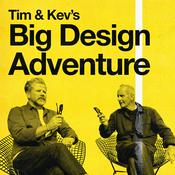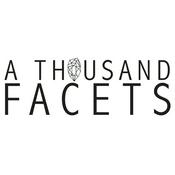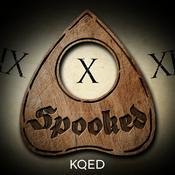207 episodes

205 | Where Web Dev Tools Meet People
02/9/2025 | 46 mins.
Web development is constantly evolving, and so are the tools we use to build. In this episode, Amy and Brad chat with the organizers of Squiggle Conf about the future of web dev tooling, how conferences shape the developer experience, and why community matters just as much as code.Chapters0:00 - Intro0:34 - Meet the Guests: Squiggle Conf OrganizersSquiggle Conf1:19 - What Makes Squiggle Conf Unique3:19 - Tooling and Developer Experience3:30 - Penguins, IMAX, and the Conference Venue4:18 - Who Should Attend Squiggle Conf5:31 - How Talks Are Selected and Curated6:51 - Social and Community Aspects of the Conference12:19 - Behind the Scenes of Organizing a Conference17:46 - Lessons Learned from Running Events23:30 - The Role of Tooling in Modern Development27:21 - Browser-Based Tools and Their Impact28:51 - Shoutout to Astro and Other FrameworksAstroStarlight - Astro's template for documentation33:51 - Comparing Different Conference Experiences38:55 - Building Momentum in the Developer Community40:45 - Looking Ahead: The Future of Squiggle Conf42:02 - Final Thoughts from the Organizers43:43 - Picks and PlugsAre the Types Wrong? — a package & CLI tool by Andrew Branch from the TypeScript teamThe Harry Potter movie seriesCloudflareOne Switch - Mac Menu Bar AppRedwoodSDK

204 | Why Vue? A Deep Dive with Alex Riviere
08/7/2025 | 52 mins.
Vue developer Alex Riviere joins Amy to explore the fundamental differences between Vue and React, diving deep into Vue's unique approach to reactivity, templating, and developer experience. From the magic of V-Model eliminating controlled/uncontrolled input complexity to Vue's proxy-based reactivity system that "just works," Alex explains why Vue's mental model clicked for him coming from jQuery. The conversation covers Vue 3's Composition API and Script Setup syntax, the evolution from VueX to Pinia for state management, and exciting developments like Vue Vapor Mode that will eliminate the virtual DOM entirely. Alex also breaks down Evan You's recent $4.6M VoidZero funding to revolutionize JavaScript build tooling, the flexibility of Nuxt as a meta-framework, and why Vue remains approachable enough to sprinkle into any project without complex build steps. Show Notes00:00 - Intro01:10 - How Alex Got Started with Vue03:00 - Vue vs React Mental Models08:00 - Vue's Approach to Forms and V-Model10:20 - Vue Frameworks: Nuxt and the Ecosystem17:00 - Vue 2 to Vue 3 Migration Challenges19:00 - Nuxt as a Dev Dependency vs Runtime22:30 - When Do You Need a Framework with Vue?25:30 - Laravel Integration and Alpine.js Connection27:40 - Vue's Reactivity System and Proxies29:40 - State Management: VueX to Pinia Evolution32:20 - SSR and Server Components in Vue34:10 - Hosting and Deployment Options35:40 - Evan You's VoidZero Funding and Vision43:10 - Vue Vapor Mode: Eliminating Virtual DOM47:40 - Getting Started with Vue Resources48:40 - Picks and Plugs Links and ResourcesPeople MentionedAlex Riviere - @alexriviereEvan You - Vue.js creator - @youyuxiBen Hong - Vue core team member - @bencodezenDaniel Roe - Nuxt team - @danielcroeTaylor Otwell - Laravel creator - @taylorotwellVue.js ResourcesVue.js Official Site - vuejs.orgVue.js Documentation - vuejs.org/guideVue School - vueschool.ioVue Mastery - vuemastery.comFrameworks & Tools MentionedNuxt - nuxt.comVite - vitejs.devAstro - astro.buildPinia (Vue state management) - pinia.vuejs.orgVueX (legacy state management) - vuex.vuejs.orgAlpine.js - alpinejs.devLaravel - laravel.comLivewire - livewire.laravel.comSolid.js - solidjs.comReact - react.devSvelte - svelte.devBuild Tools & InfrastructureESBuild - esbuild.github.ioRollup - rollupjs.orgNitroPack - nitro.unjs.ioWebpack - webpack.js.orgVoidZero (Evan You's new company) - voidzero.devHosting PlatformsNetlify - netlify.comVercel - vercel.comCloudflare - cloudflare.comReact Ecosystem (for comparison)Next.js - nextjs.orgRemix - remix.runRedwoodJS - redwoodjs.comGatsby - gatsbyjs.comPodcasts & ContentDeja Vue Podcast - dejavue.fm (mentioned Evan You VoidZero interview)Vue.js Conferences - VueConf eventsTechnical Concepts to ResearchVue Composition API - vuejs.org/guide/extras/composition-api-faq.htmlVue Script Setup - vuejs.org/api/sfc-script-setup.htmlVue Directives - vuejs.org/guide/essentials/template-syntax.html#directivesVue Reactivity - vuejs.org/guide/extras/reactivity-in-depth.htmlVue Vapor Mode (experimental) - github.com/vuejs/core-vaporJavaScript Proxies - MDN Proxy DocumentationSignals (reactive programming) - General concept in modern frameworksPicks & PlugsDropout TV - Nobody Asked - dropout.tvCodeMash Conference - codemash.orgWhoosh Screen Cleaner - https://amzn.to/4nBR5UtAdditional Helpful ResourcesVue 2 to Vue 3 Migration Guide - v3-migration.vuejs.orgVue vs React Comparison - vuejs.org/guide/extras/composition-api-faq.html#comparison-with-react-hooksIslands Architecture - jasonformat.com/islands-architecture

203 | Feature Flags, Framework Wars, and Landing Your Next Dev Job
13/5/2025 | 46 mins.
In this hosts-only episode, Amy and Brad get real about the developer experience - from the stress of job interviews to the complexities of choosing the right framework. They discuss why companies are comparing candidates more than ever, share strategies for answering behavioral interview questions, and debate the merits of Remix versus Next.js (spoiler: Brad's all-in on Remix). The conversation shifts to feature flags and progressive rollouts, with insights from Brad's work at Stripe. SponsorWorkOS helps you launch enterprise features like SSO and user management with ease. Thanks to the AuthKit SDK for JavaScript, your team can integrate in minutes and focus on what truly matters—building your app. Chapter Marks00:00 - Intro00:41 - Sponsor: WorkOS01:47 - Brad's Keyboard and Mouse Shopping Spree04:30 - Keyboard Layout Discussion07:23 - Apple Ecosystem: Reminders and Notes09:23 - Family Sharing and Raycast Integration09:43 - Notion vs Apple Notes for Project Management11:31 - File Storage and Backup Strategies14:00 - Machine Backup Philosophy16:46 - Job Interview Preparation Tips19:40 - Answering the "Weakness" Question21:53 - Addressing Weaknesses: Delegation Examples24:29 - Conflict Resolution Interview Questions25:46 - Company Research Before Interviews27:00 - Tech Stack Considerations: Remix vs Next.js28:30 - Framework Migration Decisions29:30 - Astro for Content Sites31:02 - Backend Languages: Go vs TypeScript32:30 - React Server Components Future34:23 - Feature Flags and Boolean as a Service35:30 - Feature Flag Segmentation and A/B Testing36:54 - PostHog and Analytics Tools38:30 - Progressive Rollouts and Error Monitoring40:20 - Amy's Picks and Plugs43:35 - Brad's Picks and Plugs

202 | Framework Trade-offs: What Laravel Offers JavaScript Developers
08/4/2025 | 53 mins.
Josh Cirre joins us to discuss his transition from the JavaScript ecosystem to Laravel, revealing why PHP frameworks can offer a compelling alternative for full-stack development. We explore the "identity crisis" many frontend developers face when needing robust backend solutions, how Laravel's batteries-included approach compares to piecing together JavaScript services, and the trade-offs between serverless and traditional hosting environments. Josh also shares insights on Laravel's developer experience, front-end integration options, and his thoughts on what JavaScript frameworks could learn from Laravel's approach to abstraction and infrastructure.Show Notes0:00 - Intro1:02 - Sponsor: Wix Studio1:46 - Introduction to Laravel2:25 - Josh's Journey from Frontend to Backend5:40 - Building the Same Project Across Frameworks6:32 - Josh's Breakthrough with Laravel8:20 - Laravel's Frontend Options10:25 - React Server Components Comparison12:00 - Livewire and Volt13:41 - Josh's Course on Laracasts14:08 - Laravel's DX and Ecosystem16:46 - MVC Structure Explained for JavaScript Developers18:25 - Type Safety Between PHP and JavaScript21:12 - Laravel Pain Points and Criticisms22:40 - Laravel Team's Response to Feedback24:50 - Laravel's Limitations and Use Cases26:10 - Laravel's Developer Products27:20 - Option Paralysis in Laravel30:46 - Laravel's Driver System33:14 - Web Dev Challenge Experience33:38 - TanStack Start Exploration34:50 - Server Functions in TanStack37:38 - Infrastructure Agnostic Development41:02 - Serverless vs. Serverful Cost Comparison44:50 - JavaScript Framework Evolution46:46 - Framework Ecosystems Comparison48:25 - Picks and Plugs Links Mentioned in the EpisodeLaravel - PHP frameworkTanStack Start - React meta-framework Josh created a YouTube video aboutLivewire - Laravel's HTML-over-the-wire front-end frameworkInertia.js - Framework for creating single-page appsVolt - Single file component system for LivewireLaravel Cloud - Managed hosting solution for Laravel applicationsHerd - Laravel's tool for setting up PHP development environmentsForge - Laravel's server management toolEnvoyer - Laravel's zero-downtime deployment toolLaracasts - Where Josh has a course on LivewireJosh Cirre's YouTube channelHTMX - Frontend library Josh compared to LivewireWeb Dev Challenge with Jason Lengstorf (featuring Josh and Amy)Josh Cirre's BlueSky account (@joshcirre)Amy's BlueSky accountBrad's BlueSky account Additional ResourcesLaravel DocumentationSvelte's new starter kit (mentioned as a good example)Nightwatch - Latest product from LaravelLaravel Vapor - Serverless deployment platform for LaravelTheo's Laravel exploration (discussed in the criticism section)Laravel BreezeLaravel JetstreamLaravel Fortify (authentication package mentioned)Adonis.js (JavaScript framework compared to Laravel)Anker USB powered hub (Josh's pick)Grether's Sugar Free Black Currant Pastilles (Josh's pick)JBL Portable Speaker (Amy's pick)

201 | The Backend Dilemma: Laravel's Strengths in a JavaScript World
01/4/2025 | 46 mins.
In this episode, Amy and Brad dive into the ongoing debate between Laravel and full stack JavaScript frameworks. They explore both ecosystems from their unique perspectives. Amy shares her real-world experience building a project in Laravel after working extensively with JavaScript frameworks, highlighting where each approach shines and struggles. From Laravel's backend prowess to the cognitive load of context switching between languages, this episode offers practical insights for developers weighing these technology choices.Show Notes00:00 - Intro01:00 - Sponsorship: Sanity01:59 - Origins of the Laravel vs JavaScript Discussion03:59 - Amy's Experience Building a Project in Laravel06:59 - PHP Development and Linting Experience11:59 - Understanding MVC Architecture15:00 - Challenges with JavaScript Backend Services18:00 - Backend Strengths of Laravel20:00 - Frontend Challenges in Laravel23:00 - Comparing Laravel and JavaScript Ecosystem Solutions26:59 - JavaScript Full Stack Frameworks Discussion30:00 - Architectural Differences Between Frameworks33:00 - Framework Choice Considerations38:59 - Picks and Plugs: Newsletter and Cameras42:00 - Picks and Plugs: Games and YouTube Links and ResourcesSanity.io (sponsor)LaravelSam's podcast: Frontend FirstRedwoodJSRemixNext.jsAstroSupabaseInngestResend (email service)Postmark (email service)OpenAIPrismaPHP StormLaravel Blade (templating language)Laravel LivewireAlpine.jsLaravel BreezeLaravel Eloquent ORMAdonis/AdonisJSEpisode 54: Why RedwoodJS is the App Framework for Startups, with David PriceViteStorybookAmy's newsletter: Broken CombInsta360 X2 cameraInsta360 Go 3 cameraStardew Valley (game)Brad's YouTube channelCloudinary channel and Dev Hints series
More Arts podcasts
Trending Arts podcasts
About COMPRESSEDfm
Listen to COMPRESSEDfm, Zero to Well-Read and many other podcasts from around the world with the radio.net app

Get the free radio.net app
- Stations and podcasts to bookmark
- Stream via Wi-Fi or Bluetooth
- Supports Carplay & Android Auto
- Many other app features
Get the free radio.net app
- Stations and podcasts to bookmark
- Stream via Wi-Fi or Bluetooth
- Supports Carplay & Android Auto
- Many other app features


COMPRESSEDfm
download the app,
start listening.





































